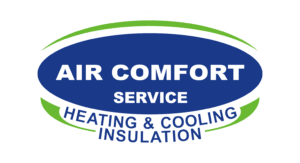Improve Indoor Air Quality for National Wellness Month
Just What Is Indoor Air Quality?
Indoor air quality describes the quality of air inside a building. This includes the air being breathed and the things everyone touches. Poor indoor air quality can have long-term health effects.
Many things can affect indoor air quality. Some indoor air pollutants come from the outside. Others, like cleaning products, paint, and carpets, come from inside the building.
How Does Poor Air Quality Affect Health?
Indoor air pollutants can cause various health effects, from mild to severe. Some commonly reported effects are headaches, dizziness, fatigue, aggravated or worsened asthma, and allergy symptoms. These symptoms can sometimes be long-term and lead to more severe health conditions. It’s essential to improve indoor air quality and reduce exposure to pollutants as much as possible.
While the immediate effects of exposure to poor indoor air quality may be minor, such as headaches or dizziness, the long-term effects can be much more serious. Chronic exposure to some indoor air pollutants can cause respiratory disease, heart disease, and cancer. These health effects can occur after many years of exposure and may not be immediately apparent.
The long-term health effects of chronic exposure to poor indoor air quality include respiratory diseases, heart disease, and cancer. These effects can be caused by various indoor air pollutants, including particles from tobacco smoke, asbestos, radon, and combustion gasses. People chronically exposed to poor indoor air quality are at increased risk for developing these severe health conditions.
Air Quality Maintenance and Air Filters
One of the best ways to improve indoor air quality is by regularly changing the air filter and scheduling annual maintenance visits with a professional. This will help keep the home’s air clean and free of pollutants.
One should change the HVAC system’s air filter every three months. If an issue with the indoor air quality is detected, replace the air filter more often. Call a professional if the air quality doesn’t improve. In certain circumstances, homeowners may need the assistance of a specialist to install an air purifier to maintain the air quality and reduce pollution.
Are Portable Air Cleaners Effective?
Portable air cleaners like purifiers and air sanitizers are devices that improve indoor air quality by trapping or killing pollutants. Purifiers work by removing particles from the air, while air sanitizers work by killing bacteria, viruses, and other microorganisms. Both types of air cleaners are effective at removing and killing indoor pollutants, but cleaners are better at removing larger particles, while air sanitizers are better at killing smaller particles.
If there is concern about indoor air quality, consider using a portable air cleaner to improve the air in the home or office. Portable air cleaners can remove many different types of pollutants from the air, including dust, pollen, smoke, and bacteria. Choose the right portable air cleaner to help improve indoor air quality and protect everyone’s health.
About Air Comfort Service, Inc.
Air Comfort Service, Inc. is an award-winning, full-service HVAC company with a long history of providing quality heating and AC solutions. Call them for HVAC services in St. Peters, MO.
